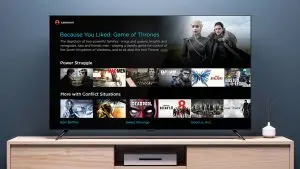In the last two decades or so, we’ve gone from watching television mostly on a predetermined live schedule to streaming TV directly onto our devices and watching it whenever and wherever we want. But let’s be honest, for all the advances in video-delivery technology over the years, we still spend way too much time sitting around and trying to decide what to watch.
Content discovery on television is mostly a terrible experience, a wasteland of irrelevant recommendations, outdated channel menus, and mindless trial and error. And, yes, I’m including Netflix’s supposedly sophisticated algorithms in this mix, although I’m certainly not the first person to notice the streaming company’s tendency to steer viewers toward mediocre content.
So what’s to be done? Gracenote, the media metadata provider scooped up by Nielsen in 2017, has what it hopes will be the next generation in content discovery. The company today announced the launch of a new product called Gracenote Video Descriptors, which it says will offer deeper engagement metrics to pay-TV providers, streaming services, and connected device makers, thereby allowing them to produce better content-discovery mechanisms.
The new service–the first of Gracenote’s Advanced Discovery suite of products–uses hyper-detailed metadata about entertainment content, including descriptors about a show’s mood, theme, characters, and scenarios. For viewers, that means more “contextually relevant” discovery experiences, Gracenote says, with more personalized suggestions based on past viewing behavior.
As an example, Gracenote used HBO’s Game of Thrones, for which Video Descriptors pinpoints thematic elements like “greed” and “betrayal,” scenarios like “power struggle” and “manipulation,” and moods like “dark” and “gripping.” Understanding such elements will allow the service to deliver more nuanced recommendations, Gracenote says.

It’s also unclear who will initially benefit from the offering. Nielsen declined to say which companies have signed on to use Video Descriptors, although Simon Adams, Gracenote’s chief product officer, promised that big-name brands are on board.
“While we cannot divulge specific customer names because their products and features have not yet launched, we can say that a number of major media companies have licensed Gracenote Video Descriptors,” Adams said in a statement to Fast Company. “Critical to these customers was the fact that the data solution was developed using a balance of expert human editors and advanced technology.”
For now, I remain skeptical but ever hopeful.
Recognize your brand’s excellence by applying to this year’s Brands That Matter Awards before the early-rate deadline, May 3.